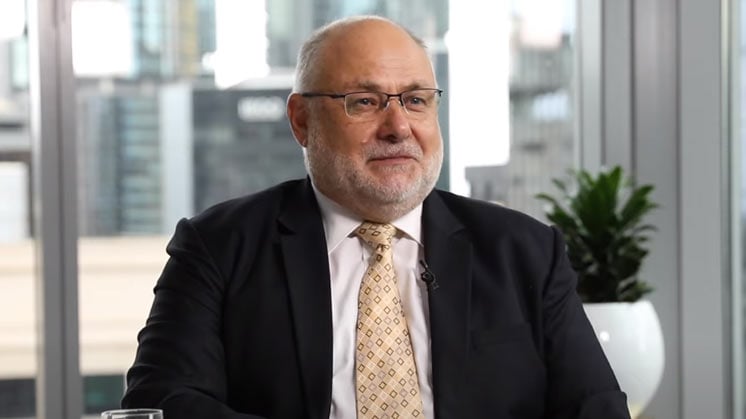
Credit markets are facing a challenging environment of tightening financial conditions and slowing earnings growth where risk management is more crucial than ever. Most recently, the impact of the sharp tightening of global monetary policy was observed in March as credit spreads were impacted by concerns over the strength of the global banking system. Perpetual’s Managing Director, Credit & Fixed Income, Michael Korber gives his views on the impact this is having on - and opportunities being created for - the Perpetual Credit Income Trust (PCI).
“The PCI portfolio is designed to be the bedrock of people’s portfolios. To do this we don’t chase the highest possible return, we chase the highest quality return. And we think current events globally reinforce the virtue to this approach,” said Michael. “Our credit outlook improved slightly in the first few weeks of March but more recent events, including the collapse of SVB, Signature Bank and Credit Suisse, significantly changed market sentiment and volatility.”
Refinancing risks
Whilst the epicentre was the US regional banking sector, the widening of credit spreads, softening liquidity, and risk aversion spread globally. This has been a further headwind in a market environment already facing up to a spike in inflation and lower economic growth outlooks.
“All of this leads to liquidity pressures in financial markets, making it harder to borrow money in the short term, but also raising refinancing risks for even good borrowers over the next couple of years,” said Michael. “I think we are going to have this tighter, more challenging environment going forward but it is also one that creates opportunity for our portfolio.”
PCI is broadly a corporate credit portfolio, with a focus on large Australian corporates, and so had (and continues to have) little exposure to global banking risk. Where PCI does have offshore exposure, these are to large, systemically important banking franchises in big domestic markets and they meet our investment criteria of being quality issuers with good balance sheets, predictable cash flows and have quality, capable management.
“Our portfolio is unconstrained which allows us to invest very broadly across the fixed income universe,” said Michael. We’re not constrained to particular sectors or particular types of assets. In tough times this allows us to cherry pick the best assets.”
Focus on diversification
In terms of positioning the PCI portfolio to take advantage of the market environment, the focus is on diversification.
“At the moment we hold 127 assets across 91 issuers with 37.4% investment grade, 56.1 % high yield (sub investment grade and unrated) and 6.5% cash,” said Michael. “But diversification is not just about having a large number of issuers or different types of credit quality. We also spread the risk in the portfolio across a variety of sectors/industries and asset types such as bonds, RMBS/ABS and corporate loans1.”
Michael Murphy, Perpetual Senior High Yield Analyst and Portfolio Manager of the Perpetual Loan Fund, outlined the importance of fundamental research when identifying quality issuers to appropriately manage risk when investing in high yield assets and loans offering attractive coupons. At the end of March, the Perpetual Loan Fund comprised 46.2% of the PCI.
“In terms of what we look for in the portfolio, the borrowers are typically large corporates with a strong market position, significant economic moats and high recurring revenues that are resilient to economic downturns,” he said. “A couple of examples would be Arnott’s and Colonial First State.”
Michael added that it was also worth noting some absentees from the portfolio.
“We have very little exposure to companies that have exposure to discretionary spending,” he said. “We also have no exposure to property development, which is more dependent on economic cycles, and we’re mindful that many investors are already heavily weighted to the property sector with their own direct investments. This ties in with the earlier theme of diversification and our intention to provide retail investors access to credit assets that may typically be harder to access or only for wholesale/institutional markets.”
For more information, please visit Perpetual Credit Income Trust (ASX: PCI)


